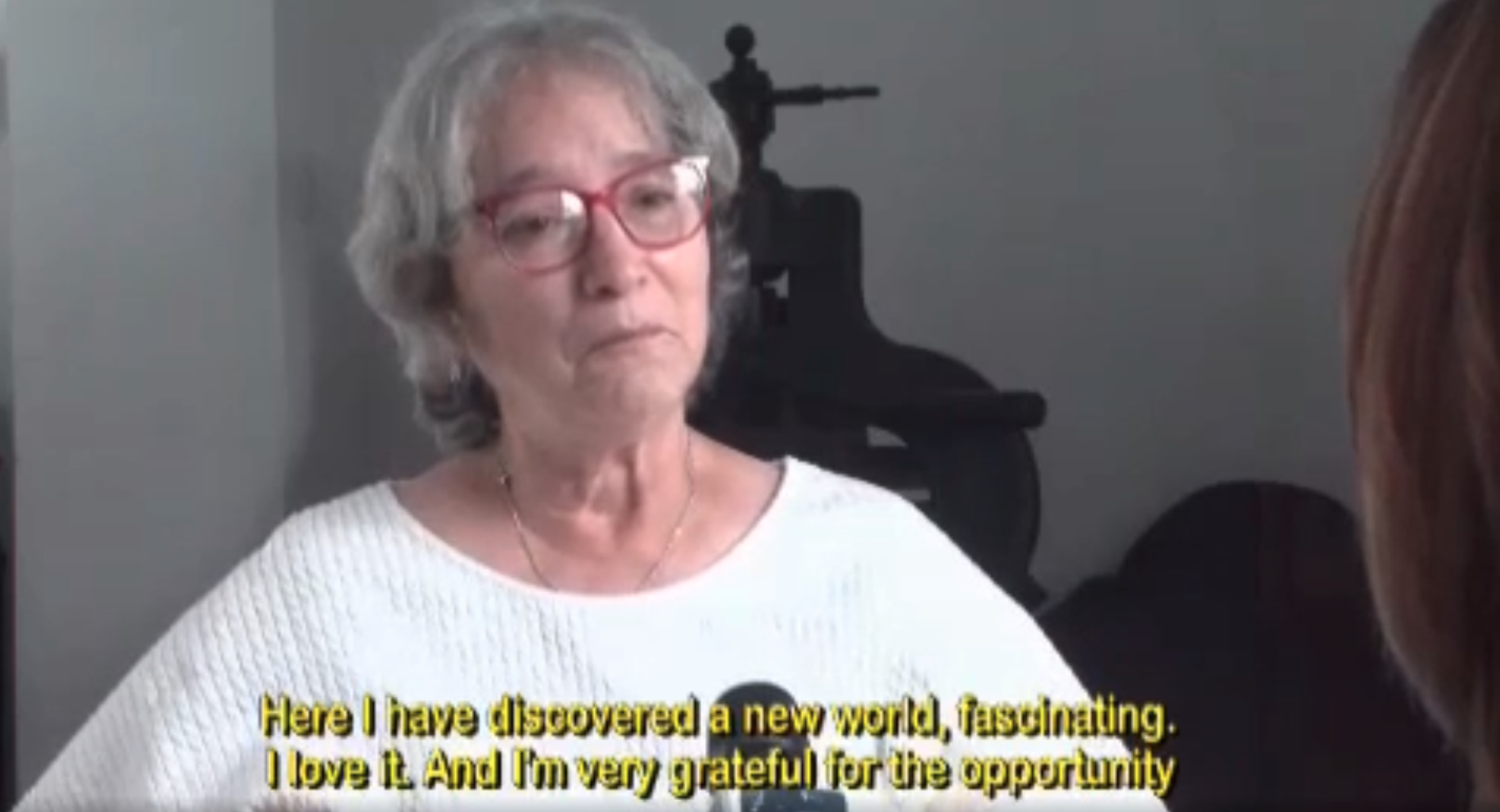By Mayra Acevdo. This written story originally aired as a segment on WIPR TV’s “Notiséis 360 PR”
“This program helps them re-enter the workforce and find financial and emotional support.”
Silvana Colón retired 10 years ago, after a career in advertising and teaching. As she searched for a job to supplement her pension she found, “After you are 55 years old, it’s hard to find a job because there is discrimination because of your age.”
Colón continued, “Unfortunately, I started teaching, and teachers do not pay into Social Security, so I didn’t pay it for the 10 years [of contributions needed to receive its benefits]. I only receive what I paid before that period at the Education Department.” As in many states, public employees are not covered by federal Social Security, instead have pensions through the state or territory.
Asked if her pension is enough to live on, Colón stated, “No, it’s not enough, it’s not enough.” Now she works as a paid volunteer under Senior Community Service Employment Program (SCSEP), offered in PR through the AARP Foundation. The federal service-based training is for low-income adults ages 55 years and older and is managed around the US and territories by nonprofit organizations.
Colón is one of over 200 participants in PR, who want to return to the workforce. Through SCSEP they receive training, coaching, and job-seeking tools to compete for current in-demand jobs.
According to Marilyn Ríos, director of this back-to-work program, “There is a lot of necessity. We receive hundreds of applications each year. We work on them according to the individual needs of applicants, and what we consider the most urgent needs, like where they live and their income. Some applicants do have income, while others don’t. Some only receive Food Stamps, or SNAP.”
Ríos said the program has three offices in Puerto Rico that connect participants with 68 non-profit organizations and employers after they receive training.
She explained, “They learn or acquire new skills. They learn about current labor trends and how things have evolved during recent years. Then they receive support services, like specialized training. We also pay for professional certifications that have expired, so they may compete for job openings. And during the last phase, we help them re-enter the workforce or become self-employed. “
Maria Soledad, a former journalist, found the program through a municipal consortium. She was laid off from a local newspaper and couldn’t find a job. “The journalism industry is tough, so I couldn’t find a job. I decided to change. If it wasn’t in journalism, I had to look into another field because I was not going to stay home and do nothing,” she said. Soledad currently manages social media for the Book Museum in Old San Juan.
“Here I have discovered a new world, she said. “It’s fascinating. I love it. And I’m very grateful for this opportunity thru AARP. They help you according to your interests. They locate a job for you and give you a stipend. They even pay for your training.”
According to the program’s statistics, most participants are women with low income, or below poverty levels with low work expectations. It’s a reality that changes through the program.
Ríos said, “There is a demand for workers, and we’ve had many companies come to us for personnel. They’ve realized there are many people 55+ available and willing to return to the workforce.”
If you are over 55 years old and need to get back to the workforce, you may contact the PR Labor Department or AARP Foundation at (787) 723-4404.
Mayra Acevedo is a ho.st/producer for WIPR TV’s Notiséis 360 PR. She produced this story with support from a Journalists in Aging Fellowship from The Gerontological Society of America (GSA), The Commonwealth Fund and the Journalists Network On Generations (www.gbonews.org).
The opinions expressed in this article are those of the author and do not necessarily reflect those of the Diverse Elders Coalition.

